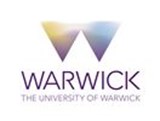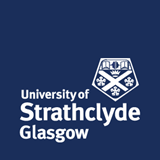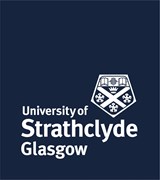





















Making Smart Local Energy Systems (SLES) work most effectively will need knowledge from many different disciplines and fields. As reflected in the structure of the EnergyREV consortium, research is needed on users, business models, technological integration, skills requirements and much more. EnergyREV’s interdisciplinary knowledge synthesis work considered how these different areas overlap and interact with each other. Our work was designed to help SLES stakeholders think holistically about their plans, ensuring they don’t overlook important areas, interactions, and recommendations. Our work brought different components of EnergyREV together to think about how their work could draw on, or complement, that of others in the consortium.
Our work had a number of main strands. We did extensive review work to understand the characteristics of SLES and get the “lay of the land” on what is already known about them. We used this to start to develop an understanding of expectations around the conditions needed to deliver a successful SLES. This, together with input from our highly multidisciplinary consortium, helped to establish a ‘Theory of Change’ which brings together the components of an SLES and how they fit together. Alongside this we have conducted more focused, albeit still cross-cutting, reviews, including one on privacy and data sharing in SLES, and one on the emerging themes from EnergyREV work so far. We also led on a report considering the role of SLES in post-pandemic green economic recovery.
Most of our work used a systematic evidence review approach. That is, we used rigorous methods to identify existing research publications relevant to the topic(s) under investigation, and draw on these to provide an overview of what is known about that topic.
We employed a “realist” synthesis approach, which means we were not just interested in “what works” in relation to SLES, but how it works, for whom, and in what circumstances. A large part of our work also involved using ‘Theory of Change’ approaches, which use participatory methods to surface our expectations about how exactly the outcomes of complex interventions, in this case SLES, might come about.
We have produced principles and recommendations for how SLES providers can appropriately address privacy and data sharing concerns. We have also co-developed a “SLES lens” to illustrate the different ways in which SLES can help deliver post-pandemic green economic recovery. The facets of the lens are local knowledge, engagement and trust, coordinated planning, economic strategy, unlocking co-benefits, and scaling up.
The interactive EnergyREV Theory of Change that we developed is a handy way to see how findings across EnergyREV fit into the picture of how SLES can deliver desired outcomes. We populated the SLES ‘Theory of Change‘ with key policy/governance considerations and recommended metrics for tracking SLES progress.
Theme Lead’s: David Shipworth and Michael Fell
Researchers: Chris Maidment and Carol Vigurs
2024
Report - Lessons from Energy Rev: the role of smart local energy systems in a net zero future (June 2024)
2023
Report - The role of energy networks in smart local energy systems (July 2023)
2022
Report and briefing - What works for multistakeholder, multi sector collaborations for smart local energy systems (SLES)? (October 2022)
Report - Building and unlocking flexibility with smart local energy systems (SLES) (April 2022)
2021
Interactive Tool – EnergyREV Theory of Change (ongoing work)
Report & Briefing - Starting to join the dots: An interim review of EnergyREV insights (September 2021)
Journal Paper - Smart local energy systems (SLES): A framework for exploring transition, context, and impacts (May 2021)
Report - Privacy and data sharing in smart local energy systems: Technical report (February 2021)
Journal Paper - Customer Privacy Concerns as a Barrier to Sharing Data about Energy Use in Smart Local Energy Systems: A Rapid Realist Review (February 2021)
2020
Journal Paper - Two energy suppliers are better than one: Survey experiments on consumer engagement with local energy in GB (December 2020)
Report & Briefing - Post-Pandemic Recovery: How Smart Local Energy Systems Can Contribute (December 2020)
Report & Briefing - Privacy and Data Sharing in Smart Local Energy Systems (November 2020)
Report & Worksheet - Developing an Organising Framework: How do we create successful smart local energy systems? (May 2020)
Report & Database - Developing a research portal on smart local energy systems: Introduction and background report (May 2020)
2019
Report - A Framework for Understanding and Conceptualising Smart Local Energy Systems (October 2019)
Working Paper - Smart Local Energy Systems (SLES): A framework for exploring transition, context, and impacts (July 2019)





















